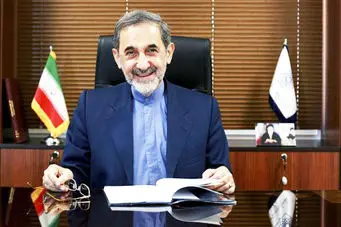A Glance at Dr. Ali Akbar Velayati’s Biography
Dr. Ali Akbar Velayati was born on June ۲۴, ۱۹۴۵, in Rostamabad, one of the ۳۳ villages of Shemiran.

 After finishing elementary and middle school in Rostamabad, he attended Jam high school in the Gholhak district of Tehran and finished high school in ۱۳۴۲, with an emphasis in biology studies. In ۱۳۴۳, he participated in the university entrance exam and was accepted to the medical school of Tehran University. After achieving a general medical degree, he became a resident in pediatrics in Children's Medical Center of the University of Tehran, and then specialized in infectious diseases at Johns Hopkins University in the US. While studying, Velayati taught at Ghaemiyeh School and then at the Jahan Ara High School of Gholhak.
After finishing elementary and middle school in Rostamabad, he attended Jam high school in the Gholhak district of Tehran and finished high school in ۱۳۴۲, with an emphasis in biology studies. In ۱۳۴۳, he participated in the university entrance exam and was accepted to the medical school of Tehran University. After achieving a general medical degree, he became a resident in pediatrics in Children's Medical Center of the University of Tehran, and then specialized in infectious diseases at Johns Hopkins University in the US. While studying, Velayati taught at Ghaemiyeh School and then at the Jahan Ara High School of Gholhak.
Prior to the Islamic revolution, Velayati was interrogated several times and had a file in the Tehran SAVAK bureau because of his encouraging students to participate in protests against the Shah.
In 1961, he had become a member of the National Front. With regard to discontinuation of his activities in the Front, he says: "I was looking for a place to follow my political activities. At that time, the National Front and the Freedom Movement were the only existing political entities. Following the demise of Ayatollah Boroujerdi, I followed Imam Khomeini. On June 6th, 1963, I separated from the National Front and started having relations with religious scholars and activists." While studying in university, Velayati became active in the Islamic Association of Physicians- which had become inactive after Sheibani- and along with other students like Lavasani, Labbafi Nejad, Motamedi, Jazaeri and Khademi, revitalized the association. He was also in regular contact with different political groups, especially the religious scholars who were followers of Ayatollah Khomeini.
Following the victory of the Islamic Revolution of Iran in 1978, he held the following positions: Deputy Health Minister, Tehran's representative in the first term of the Islamic Consultative Assembly, and served 16 years as Foreign Minister during the presidencies of Ayatollah Khamenei, the Supreme Leader, and Ayatollah Hashemi Rafsanjani from 1981 to 1996. Subsequently, he became international affairs advisor to the Supreme Leader, a role he occupies until today. In 2005, he became one of the presidential candidates, but later withdrew in support of Ayatollah Hashemi's candidacy.
With regard to his position as the Foreign Minister during the Iran-Iraq war and in negotiations with that country, he says: " The most difficult and complicated negotiations during the 16 years as Foreign Minister were the peace negotiations between Iran and Iraq, which continued between 1988 and 1990. The Iraqis did not fulfill their commitments and intended to gain in negotiations what they could not achieve in war. What were the Iraqis after in the war? Governance over the Shatt al-Arab, and they intended to gain this concession."
Ali Akbar Velayati is in the professor list of several universities. He is one of the members of the Expediency Council and the Foundation of Islamic Encyclopedia . He is the head of Dr. Masih Dāneshvari Hospital and the Organ Transplant Support Society. He is also a member of the High Council of Cultural Revolution.
Recently, He was elected as the head of Center for Strategic Research since November ۲۰۱۳, by Ayatollah Hashemi Rafsanjani. Center for Strategic Research was established in ۱۹۸۹ to compile and draw up Islamic Republic of Iran's strategies in various fields. The main task of the center is to carry out strategic studies in various international, political, economic, legal, cultural, and social fields.
